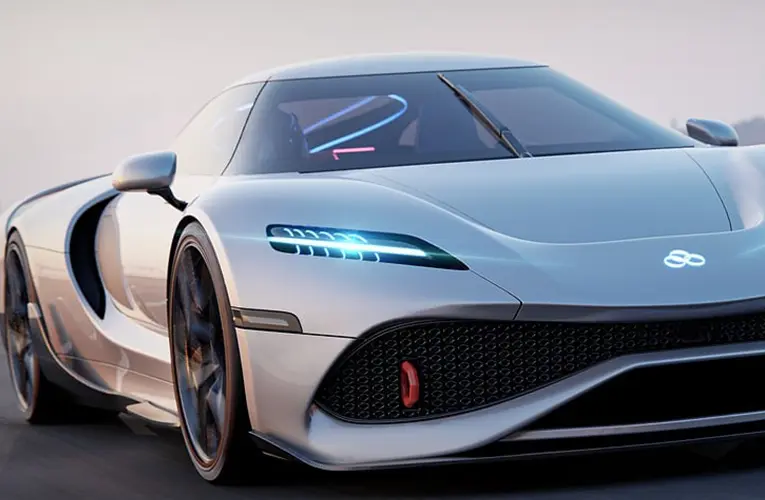Lightweight Luxury, Cutting-Edge Performance: Exploring the Future of Tech-Powered Bikes
The humble bicycle, a timeless invention, is experiencing a renaissance. No longer just a utilitarian mode of transportation, it’s evolving into a sophisticated machine that blends cutting-edge technology with lightweight materials and exceptional performance. This article delves into the future of tech-powered bikes, exploring the exciting advancements that are transforming the cycling experience for both casual riders and competitive enthusiasts.
Beyond the Frame: Redefining the Concept of a Bike
For many, the bicycle represents freedom, adventure, and a connection with the outdoors. However, traditional bikes can have limitations. Weight can hinder performance, and basic functionality may not cater to the growing desire for a connected and personalized cycling experience. Tech-powered bikes are pushing past these limitations, redefining what a bike can be:
-
Lightweight Revolution: Advanced materials like high-modulus carbon fiber, titanium alloys, and even innovative composites are revolutionizing bike frames. These materials offer exceptional strength-to-weight ratios, resulting in bikes that are incredibly light and responsive, enhancing maneuverability and climbing efficiency.
-
Integrated Electronics: Gone are the days of bulky bike computers. Tech-powered bikes are increasingly integrating electronic components seamlessly into the frame or handlebars. This allows for features like real-time performance metrics, GPS navigation, and even electronic shifting for a cleaner aesthetic and a more intuitive riding experience.
-
Electric Power Assist: Electric-powered bikes (e-bikes) are a rapidly growing segment. These bikes seamlessly integrate electric motors with traditional pedal power, offering a powerful assist that makes conquering hills and longer distances a breeze. High-end e-bikes prioritize lightweight design, ensuring the motor and battery are discreetly integrated without compromising aesthetics.
-
Connectivity and Safety Features: Imagine a bike that automatically adjusts its settings based on terrain, weather conditions, or even the rider’s physical state. Advanced sensor technology and artificial intelligence (AI) have the potential to personalize the riding experience and enhance safety. Some bikes are incorporating features like integrated lights, GPS tracking, and even accident detection systems, offering peace of mind and a sense of security for riders.
A Marriage of Performance and Comfort: Designing for the Modern Rider
Tech-powered bikes aren’t just about flashy features; they’re designed for performance and comfort. Here’s how they cater to the modern rider:
-
Advanced Aerodynamics: Aerodynamics play a crucial role in performance cycling. Future tech-powered bikes might incorporate even more radical frame designs and integrated components to minimize wind resistance and maximize speed.
-
Personalized Riding Experience: Imagine a bike that adjusts its suspension or gear ratios based on the terrain you’re riding on. Tech-powered bikes with intelligent systems could personalize the ride for optimal comfort and efficiency.
-
Data-Driven Insights: Integrating sensors that track power output, cadence, and other performance metrics allows riders to analyze their rides and optimize their training. This data can be displayed on the bike’s integrated display or synced with smartphone apps for detailed analysis.
-
Comfort Enhancements: Tech-powered bikes might incorporate features like electronically adjustable seat posts or vibration dampening systems to enhance comfort on long rides, reducing fatigue and allowing riders to push their limits further.
A Sustainable Future for Cycling: Eco-Friendly Tech and Responsible Manufacturing
Sustainability is a growing concern for environmentally conscious riders. The future of tech-powered bikes prioritizes eco-friendly practices:
-
Green Materials: Research into sustainable materials like recycled carbon fiber or bamboo for frames is ongoing. These materials offer eco-friendly alternatives without compromising performance.
-
Energy-Efficient Technologies: Advancements in battery technology and electric motor efficiency will lead to e-bikes with longer range and shorter charging times, reducing the environmental impact.
-
Responsible Manufacturing: Sustainable manufacturing practices are becoming increasingly important. Look for brands that prioritize eco-friendly production methods and use recycled materials throughout the manufacturing process.
Evolving Alongside Technology: The Future of Cycling Communities
Tech-powered bikes have the potential to foster a more connected and vibrant cycling community. Here’s how:
-
Community Features: Imagine bikes that can connect with each other, allowing riders to track group rides, share routes, and even compete virtually. This could foster a sense of camaraderie and encourage group cycling experiences.
-
Real-Time Data Sharing: Data collected by tech-powered bikes could be used to create real-time maps of road conditions, traffic congestion, or even air quality. This information sharing could benefit all cyclists in a community.
-
Virtual Coaching and Training: Tech-powered bikes paired with AI-powered coaching apps could offer personalized training plans and real-time feedback, making cycling a more accessible and effective fitness pursuit.









